 The Yogabliss, Your Heart Life on-line Moving into Meditation classes met this morning. We explored caring presence as an inner quality and a unitive force we share. Caring presence gives rise to responsiveness: our acts of caring. Awareness enables these life experiences which, through practice, can be the refuge we find on our life’s journey.
The Yogabliss, Your Heart Life on-line Moving into Meditation classes met this morning. We explored caring presence as an inner quality and a unitive force we share. Caring presence gives rise to responsiveness: our acts of caring. Awareness enables these life experiences which, through practice, can be the refuge we find on our life’s journey.
We heard from Jeanne Corrigal’s Tricycle Magazine series, Closer Than We Think: Gentle Reflections on Death. Jeanne is the guiding teacher for the Saskatoon Insight Meditation Community. In her four part video series she shares practices she has found helpful in cultivating loving presence and responsiveness. Jeanne cultivates wholesome qualities as part of her aspiration that at the time of death she “can meet whatever’s here to the best of [her] ability with an open, kind heart.”
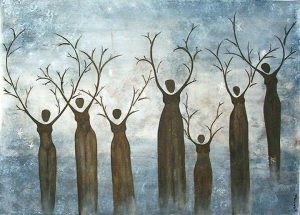 We heard Matty Weingast’s poem Grandma Sumana. This poem is from Matty’s book, The First Free Women: Poems of the Early Buddhist Nuns, a reimagining of the Therīgāthā. You can find Matty’s wonderful article about the writings along with queries for contemplation at the Barre Center for Buddhist Studies web-site.
We heard Matty Weingast’s poem Grandma Sumana. This poem is from Matty’s book, The First Free Women: Poems of the Early Buddhist Nuns, a reimagining of the Therīgāthā. You can find Matty’s wonderful article about the writings along with queries for contemplation at the Barre Center for Buddhist Studies web-site.
We ended with Rosemerry Wahtola Trommer’s poem December 31. This poem is from Rosemerry’s A Hundred Falling Veils site which offers a poem a day. She also co-hosts Emerging Form podcast on creative process, Secret Agents of Change (a surreptitious kindness cabal) and Soul Writers Circle.
Welcome. Sense your experience of coming into stillness. Explore how stillness can hold the subtlest movements of your body. Notice what draws your attention: the sensations of weight, pressure, temperature, tension, relaxation. Be aware of how awareness moves and settles on these experiences. Notice how a responsive impulse may arise to care for yourself: adjusting, shifting, finding a blanket or pillow. You are always welcome to create conditions in which ease and awareness can arise. You might become aware of how your life is sustained moment to moment. You are living and aware.
As awareness rests with the body you might explore a sense of steadiness. A steadiness that abides with breath, change, sensation, thought or emotion. I invite you to explore the nature of this abiding steadiness, the inner presence that is experiencing. If you find this inner focus to be agitating or discomforting feel free to respond with self-care. You might place on hand on your chest and the other on your belly. See if you can relax and feel your body’s warmth. Your might breathe in a way that is grounding intentionally harmonizing your breath by breathing in for four counts and breathing out for four counts. You could shift awareness to an outer focus – opening your eyes, letting them rest on a soothing object, a candle, a flower, a pet.
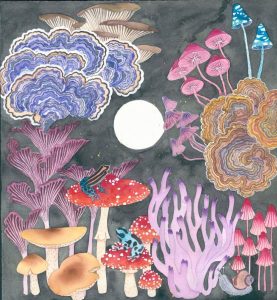 What is your experience of caring presence and responsiveness? As we practice these wholesome states we grow trust in ourselves. We give ourselves permission to find the refuge needed at a given moment. We can pause to reflect on the refuge that holds the possibility of healing or solace. What gives rise to self-compassion and wisdom? It may be communion with family, friends, spiritual practice, engaging in art, music, literature, poetry or movement.
What is your experience of caring presence and responsiveness? As we practice these wholesome states we grow trust in ourselves. We give ourselves permission to find the refuge needed at a given moment. We can pause to reflect on the refuge that holds the possibility of healing or solace. What gives rise to self-compassion and wisdom? It may be communion with family, friends, spiritual practice, engaging in art, music, literature, poetry or movement.
Insight meditation teacher Jeanne Corrigal suggests that we:
. . . let nature support us. Nature is the embodiment of these natural processes of change. When our earth body connects with the larger earth body . . . our earth body synchronizes with the larger earth body and the understandings and the wisdom of this changing flow of experience. We develop in an embodied way, . . . an understanding of impermanence, change, and beginnings and endings, that we are a part of this process of life, not separate. So let nature support you.
 May our caring presence help us to realize our belonging. May our experiences of beginnings and endings help us to live with compassion and wisdom. May we grow the generosity of spirit to feel our hearts’ wholeness. Poet and writer Matty Weingast writes about caring presence and our humanness. His words are inspired by the Therīgāthā—a collection of 73 poems by the first Buddhist nuns—(The poems date from a three hundred year period, with some dated as early as the late 6th century BCE.) This one is called Grandma Sumana:
May our caring presence help us to realize our belonging. May our experiences of beginnings and endings help us to live with compassion and wisdom. May we grow the generosity of spirit to feel our hearts’ wholeness. Poet and writer Matty Weingast writes about caring presence and our humanness. His words are inspired by the Therīgāthā—a collection of 73 poems by the first Buddhist nuns—(The poems date from a three hundred year period, with some dated as early as the late 6th century BCE.) This one is called Grandma Sumana:
After
all those years looking after others,
this old heart
has finally
l earned
to look
after itself.
Each act of kindness
a stitch
in this warm blanket that now covers me
while I sleep.
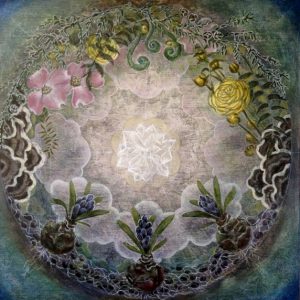 I invite you to take refuge in these moments of rest. You might tune into a sense of caring presence. Feel your body resting on Earth’s body. Become aware of how breathing sustains you. Earth. Breath. Making life possible. Can you sense the subtle energy inside your body, around your body? Can you open awareness to the greater Presence of which you are a part? I invite you to consider the refuge it offers. It is so close. It is within and around you at all times.
I invite you to take refuge in these moments of rest. You might tune into a sense of caring presence. Feel your body resting on Earth’s body. Become aware of how breathing sustains you. Earth. Breath. Making life possible. Can you sense the subtle energy inside your body, around your body? Can you open awareness to the greater Presence of which you are a part? I invite you to consider the refuge it offers. It is so close. It is within and around you at all times.
The word refuge means “place of shelter.” It is possible to find shelter – a place of calm, safety, belonging? It might be an inner place of peace you can find in times of feeling overwhelmed, lost or in conflict. The Sufi poet Kabir speaks of Presence as “the breath inside the breath.” I invite you to practice caring presence for yourself as a way of finding and taking refuge. In this practice we are cultivating a wholesome quality that reaches beyond the edges of our skin. Jeanne Corrigal writes:
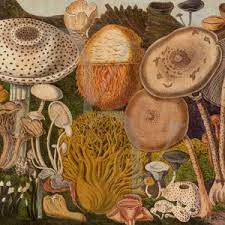 . . . This sense of the wholesome qualities of our heart . . . can give us purpose and . . . we can cultivate [them as] a way . . . to understand. . . that there is something that carries on after this body dies. . . . [a] mental legacy that carries forward rather than a legacy that you leave behind. . . .
. . . This sense of the wholesome qualities of our heart . . . can give us purpose and . . . we can cultivate [them as] a way . . . to understand. . . that there is something that carries on after this body dies. . . . [a] mental legacy that carries forward rather than a legacy that you leave behind. . . .
Our acts of caring presence will likely live beyond us. We can imagine them like seeds that find root and grow to continue the cycle of caring presence.
Jeanne cultivates wholesome qualities as part of her aspiration that at the time of death she “can meet whatever’s here to the best of [her] ability with an open, kind heart.” She describes some of these practices as:
. . . developing equanimity, surrendering or noticing the moments where we can feel a loosening of our sense of separation, allowing or even cultivating a sense of awe at this process that we are a part of, honoring our relationships, allowing the capacity to express sadness, and finding how it is that we could tell our story that makes meaning.
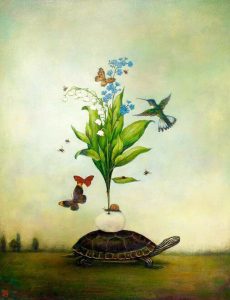 Jeanne also believes that love of self is a wholesome quality to cultivate. One of the practices that can open up a sense of love of self is self-forgiveness. Forgiveness may be at the heart of “meeting whatever’s here . . . with an open, kind heart.”
Jeanne also believes that love of self is a wholesome quality to cultivate. One of the practices that can open up a sense of love of self is self-forgiveness. Forgiveness may be at the heart of “meeting whatever’s here . . . with an open, kind heart.”
Forgiveness may be the heart of living the life we want to live. Rosemerry Wahtola Trimmer’s poem, December 31, speaks to caring presence, forgiveness and our part of the continuum of love.
I know it’s just another square
on the calendar, another tick on a clock
in the Royal Observatory in London,
but tonight feels like a good time
to forgive myself—for thinking
I know anything. For wishing for life
to be any different than it is. For
blaming anyone or anything.
For every time I have turned away
from helping someone else. Tonight
is the right time to touch the darkness
and feel how small I am, to expose
my fear for the future, my pain
of the past, and let all be flooded
by the shimmer of present mystery.
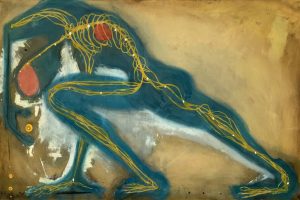 Tonight is the time to nourish
Tonight is the time to nourish
the pericardium of the world,
to take care of the one great heart
that beats in us all and trust
that our kindness matters always—
not in a conceptual way, but
in the very specific way we say hello,
the way we hold out our hand,
how we shape our words,
where we give of our time, and
how we open or wall off our thoughts.
I light a candle tonight, as every night,
and invoke my beloveds here
and not here. And though it’s a small act,
it unfastens some lock in me
and says yes, this is more
than a date, more than a timetable.
This is an essential point
on the continuum of love.
This is a chance to bring light.

